Feb 2017 2nd Edition
Feb 2017 2nd Edition andile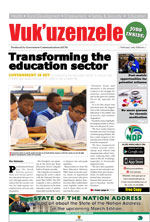
Translations
Advertorial: Connecting South Africa
Advertorial: Connecting South Africa andileIn the 2016/2017 Financial year the Deputy Minister of Telecommunications and Postal Services Professor Hlengiwe Mkhize, embarked on a nation-wide drive to connect schools, communities and government buildings throughout provinces.
This initiative was aimed at ensuring that the goal of empowering South Africans through the use of Information and Communication Technologies (ICTs) is attained. The main focus of the ICT empowerment initiative was mainly on youth, women and small businesses.
Thus far, in partnership with various ICT stakeholders in the private sector, Deputy Minister Mkhize has connected previously-disadvantaged schools and communities around the country to enable them to form part of an Inclusive Information Society.
As part of the 2016 and 2017 ICT activities, the
Deputy Minister visited various schools and pursued initiatives of ensuring that access and usage of the Internet by schools, institutions of higher learning and communities is realised.
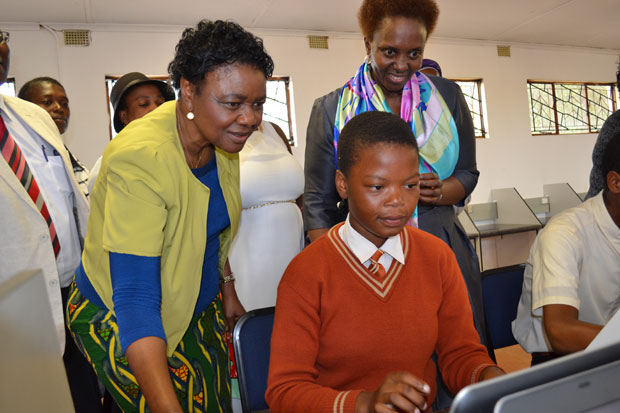
The activities include:
Launch of computer laboratory, donation of computers and tablets and courtesy visit to schools such as:
1. Gcinukuthula Primary School in Nkandla (KZN)
2. Mathole Secondary School (KZN)
3. Velangaye Comprehensive High School (KZN)
4. Mgezwa Secondary School (Eastern Cape)
5. Masixole High School (Eastern Cape)
6. Cala High School (Eastern Cape) as well as Ramosukula and
7. Bophelong Secondary School (Gauteng)
Youth and Women ICT Engagements Programmes such as :
1. The Youth Cyber Safety dialogue (Limpopo)
2. Young Women Professionals and Women in Business (Gauteng)
3. Empowerment of Women and Girls in Cape Town (Western Cape)
4. Youth ICT Seminar in Zamazulu High School (KZN)
5. Youth Development and career guidance in Maluti a Phofung TVET College (Free State)
Launch of ICT Laboratories in Institutions of Higher Learning
Launch at Orbit TVET College(North West) and Community Participation
Programmes and Free Wi-Fi walkabout in Nkandla (KZN), Sharpeville
(Gauteng), Gugulethu (Western Cape), Port Elizabeth (Eastern Cape) and Tsakani (Ekurhuleni, Gauteng).
ICT Small Business engagements such as the Eastern Cape Chapter of Black IT Forum, Southern region Durban Business Fair and Career Guidance.
The Cybersecurity Hub
The Department of Telecommunications and Postal Services has instituted a Cybersecurity Hub, which is a Centre established to ensure that all related cyber threats and
cybercrimes are detected and dealt with accordingly.
The aim of the Cybersecurity Hub is to ensure that all South Africans who have access to the Internet, feel safe using the Internet for their socio-economic well-being.
Access to the Cybersecurity Hub is FREE to all South Africans.
Deputy Minister Mkhize will continue to embark on this beneficial exercise of ensuring that access, uptake and usage of ICTs by previously marginalised groups is attained and also ensure that all South Africans are provided with a safe online environment to communicate and transact effectively.
For more Information on the Cybersecurity Hub visit us on: www.cybersecurityhub.gov.za or email : incidents@cybersecurityhub.co.za
This Message is brought to you by: The Department of Telecommunications and Postal Services
MOVING SOUTH AFRICA TO A HIGH LEVEL OF INTERNET SAFETY
Black, female doctor makes history
Black, female doctor makes history andileA young doctor is rewriting history and healing people holistically in KwaZulu-Natal.
The youthful Dr Pretty Mkhize (33) has made history by becoming the first black, female, doctor to open a homeopathy practice in the KwaZulu-Natal.
Homeopathy is the practice of medicine that embraces an holistic, natural approach to treating the sick. The medicines used in homeopathy come from vegetable, mineral and animal sources.
Dr Mkhize told Vuk’uzenzele that she first wanted to be a general practitioner, but was not accepted at medical school due to her late application. 
“I then decided to study homeopathy. After studying at the Durban University of Technology for six years, I graduated as a homeopathy doctor and fulfilled my dream of becoming a doctor.”
She then opened her practice in Umbilo.
Dr Mkhize said most of her patients are people living with HIV, diabetes and cancer, who started traditional treatment for their illness but are having side-effects.
“The medicines that I give to my patients are natural. They don’t clash with their chronic medication. Our medication focuses not only on the diagnosed ailment, but also heals the whole body both mentally and spiritually,” she added.
Dr Mkhize said even though she was not accepted at the medical school she ended up lecturing first year medical students at the Nelson
R Mandela School of Medicine at the University of KwaZulu-Natal after graduating.
“I taught medical students because I am a doctor. Some people do not understand how we work. We work like any other doctor. We conduct blood tests and admit patients if need be. If I have to transfer patients to specialists, I do,” she explained.
Dr Mkhize attributes her success to hard work and having a goal.
“It’s always good to know what you want so that you can chart your life. My parents taught me that you can accomplish any goal, as long as you put your mind to it,” she said.
Education can change a society
Education can change a society JoyThe ability of education to change a life and transform a society is reflected powerfully in the life of the late ANC President and one of the key architects of our freedom and democracy, Mr Oliver Reginald Tambo.
Had he lived, he would have turned 100 years old this year, and our nation is therefore marking his centenary in 2017.
President Oliver Tambo is celebrated for his exceptional leadership qualities and for providing direction during the darkest years of the struggle for liberation.
Importantly, he was also a teacher with a B.Sc. degree in Mathematics and Physics from Fort Hare University. He then enrolled for a diploma in higher education although he could not complete it after he was expelled for his political activism.
Later on, he completed his post-graduate degree in Law and went to open the first black-owned legal practice in Johannesburg with his friend and fellow comrade, President Nelson Mandela.
President O.R. Tambo was for most of his adult life, an example of all that was good and noble about the teaching profession and leadership. This makes him the perfect role model for all educators in our country.
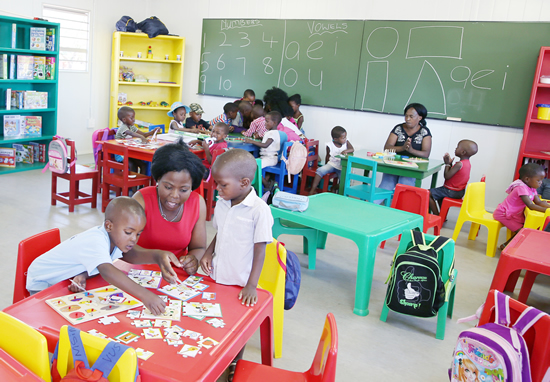 In this O.R. Tambo centenary year, we remind ourselves that education is the ladder out of poverty and economic stagnation.
In this O.R. Tambo centenary year, we remind ourselves that education is the ladder out of poverty and economic stagnation.
Education is our primary weapon in the struggle for economic transformation, and in the quest for a better life for all South Africans, especially the poor. It is for this reason that education gets the biggest slice of the national budget.
We will always prioritise the education of our children, because it is only through quality education that we can win our struggle against unemployment, poverty and inequality.
Our young people are hungry for education and are themselves prioritising education and training. Universities and colleges battle to find space for eager young people each year.
Our country’s Constitution calls on us to provide quality and compulsory basic education to all South Africans irrespective of race, colour, creed, religion, sexual orientation, gender identity, age, and disability.
This is a task that depends not only on learners and teachers but on parents in particular and our society as a whole.
Education is not only about academic content that may help young South Africans succeed in their careers, but it is also about the values we instill in young people beyond the classroom.
We should all be inspired by the good progress that has been made in education in the past 22 years.
We have made progress towards universal coverage of school going children. We have made progress in the introduction of Early Childhood Development.
We have progressively worked towards eliminating mud schools and inappropriate school structures, replacing them with state-of-the-art buildings, especially in historically neglected areas.
Government has now completed more than 135 new state-of-the-art schools in the Eastern Cape, Western Cape and other provinces. We have also provided dignified sanitation, water and electricity to hundreds more schools.
To fight hunger and poverty in schools, we have expanded the school nutrition programmes or feeding schemes in both primary and secondary schools. The nutrition programme now reaches over nine million children every school day, who are given food free of charge to improve concentration and productivity.
We have also expanded access to free education for children from poor households. More than nine million children attend no fee schools, which is at least 80 percent of our schools. No child must be denied basic education because their parents are poor or deceased.
We have also made progress by steadily and emphatically improving Matric results.
The Matric Class of 2016 worked hard and made us proud and we have even greater expectations of the Class of 2017.
Among our other achievements in education since 2009 is the fact that we have developed and distributed more than 150 million workbooks to learners from Grade R to 9, since 2009.
Government has called on provinces where there could be a slow delivery of books this year to speed this delivery so that no children will suffer the disadvantage not receiving books that are paid for by government – meaning by tax-paying citizens. We agree with communities that books must reach our children on time every year.
We collectively call upon all sectors of society to play their meaningful role to keep our youth in school and help our young people succeed.
We have no choice but to succeed. Education is our only weapon towards prosperity.
"Education is not only about academic content that may help young South Africans succeed in their careers, but it is also about the values we instill in young people beyond the classroom."
Government to tackle unviable schools
Government to tackle unviable schools JoyPresident Jacob Zuma has urged stakeholders to work together to decrease the number of school dropouts.
“Our own analysis shows that less than 50 percent of all the learners who joined our education system reach Matric after 12 years of learning.”
The President was speaking during a Basic Education Sector Lekgotla held in Pretoria recently.
He said factors that contribute to dropping out are mostly socio-economic in nature.
“Whether it is financial reasons, abuse of drugs or other social challenges, we need to tackle them together. We must keep our youth in school.
“I wish to emphasise that there must be consequences for principals and school management teams who recorded a zero percent pass rate. Everyone must strive for excellence, more so in education,” said the President.
Basic Education Minister Angie Motshekga, who spoke to media on the sidelines of the Lekgotla, said the national department is sharing ideas with provinces through reports to discover how best they can improve the sector’s performance and address remaining issues together.
Meanwhile the Minister said the department is addressing the issue of unviable schools. Most of these are found in the Eastern Cape, KwaZulu-Natal and Limpopo, which produced the lowest pass rates in the 2016 National Senior Certificate examinations results.
Eastern Cape Education MEC Mandla Makupula said out of 5 537 schools in the province, about
2 000 were found unviable.
“The process of recruitment and appointment has been very slow in the Eastern Cape for some years. The department only started improving in 2014, otherwise we have been dealing with temporary educators,” said the MEC.
Internship Programme 2017/2018: Department of Higher Education and Training
Internship Programme 2017/2018: Department of Higher Education and Training JoyThe Department of Higher Education and Training invites South African unemployed Graduates who are between the ages of 18-35 to apply for the 2017/18 Internship Programme.
APPLICATIONS: Please forward your application, quoting the Reference Number to: The Director-General, Department of Higher Education and Training, Private Bag: X174, Pretoria, 0001 Attention to Training and Development unit or Hand deliver at: 123 Francis Baard Street (Cnr Sophie De Bruyn and Francis Baard Streets), Pretoria, Reception area. Successful candidates will receive a stipend of R5 000.00 per month.
CLOSING DATE: 03 March 2017, Time: 16h00
CONDITIONS: Applications must be submitted on a Z83 form obtainable from any public service department and must be accompanied by a comprehensive CV, certified copies of qualifications and Identity Document. Candidates must be unemployed, in possession of an appropriate post school qualification, and not have previously served as interns in the Public Service. Correspondence will be limited to successful candidates only and applications received after the closing date or faxed will not be considered.
ENQUIRIES: Mr Mojalefa Rooi 012 312 5125 or
Ms Nokwanda Khoza 012 312 5192 or Mr Walter Makgoale 012 312 5760
People with disabilities and TVET College graduates are encouraged to apply.
|
BRANCH |
FIELD OF EXPOSURE |
QUALIFICATION |
REFERENCE |
|
CFO |
Development Support Public Entities Financial Services Supply Chain Management
|
Degree/B.Com : Accounting N Dip/Degree: Financial Management N Dip/Degree/B.Com: Finance with Accounting N Dip/Degree: Logistics/ Purchasing or Supply Chain Management
|
CFO/2017/01 CFO/2017/02 CFO/2017/03 CFO/2017/04
|
|
Planning, Policy and Strategy |
Research Coordination, Monitoring and Evaluation
Global Partnership, Africa & Middle East Career Development Services & Open Learning
National Qualification Framework Information System Management Social Inclusion Equity Access and Quality
Higher Education & Training Management Information System
System Monitoring and Economic Analysis
|
Honours/Masters: Education N Dip: Public Admin BA Degree: International Relations/Development Studies Honours: Public Admin/Management/Project Management Degree :Financial Management/Auditing Degree: Finance/Legal Services N Dip/ BA Degree: Project Management/Public Admin Degree: Social Sciences/ Public Admin/Information Science/Information Technology/Computer Science/Office Management N Dip/BA Degree: Information Technology
Degree/Honours: Econometrics/Economics/Statistics or Mathematics |
P/2017/05
P/2017/06 P/2017/07
P/2017/08 P/2017/09 P/2017/10
P/2017/11
P/2017/12
|
|
University |
Teaching and Learning Development in Universities Teaching Learning Qualification & Policy
Office of the DDG: University Education
|
BA Degree: Public Management/Business or N Diploma: Office admin
Degree: Education/Social Science/Communication
|
UE/2017/13
UE/2017/14
|
|
TVET |
TVET Monitoring and Evaluation, Private Colleges
System Planning and Institutional Support Office of the DDG:TVET Student Development Support TVET Infrastructure Development Programme
|
N Dip/Degree: Public Management/Admin/Accounting/Financial N Dip/Degree: Public Admin/Finance/Economics/Law N Dip/Degree: Public Admin N Dip/Degree: Public Admin/Project Management/Financial Management Bachelor: Project Management (Constructions Related Field)
|
TVET/2017/15
TVET/2017/16 TVET/2017/17 TVET/2017/18 TVET/2017/19
|
|
Corporate Services |
Call Centre & Client Services and National Provincial
Government Information Technology Office Facilities Management and Logistics Services
Human Resource Administration & Administration Human Resource Management & Development Office of the Minister and Director-General
|
N Dip/Degree: Communications Management/Media Studies/ Public Relations/ Graphic Design/ Journalism / Marketing Management
N Dip: IT/ BSc: Computer Science N Dip: Facilities/Property Management/ Public Management/Project Management
N Dip/ Degree/B Tech: Human Resource Management N Dip/Degree/ B Tech: Management of Training / Industrial Psychology/Organisational Development /Management Services N Dip/Degree: Public/Admin Management
|
CS/2017/20
CS/2017/21 CS/2017/22
CS/2017/23 CS/2017/24 CS/2017/25
|
|
Skills |
National Skills Fund and Authority
Seta Coordination
|
N Dip/Degree: Project Management/ Financial Management/ Business Management/ Public Admin
N Dip/Degree: Office Administration/HRM N Dip: Social Science
|
SD/2017/26
SD/2017/27
|
|
Community Education and Training
|
Institutional Development Support, Programme Curriculum Development & Assessment, Office of the DDG:CET
Management Information Support |
N Dip/Degree: Office Management/Administration
N Dip/Degree: Database Management/ Data Capturing |
CET/2017/28
CET/2017/29 |
|
VCET |
Implementation of the VCET Turnaround Strategy |
N Dip/Degree: Financial or Project Management
|
VECT/2017/30 |
|
The following post are based at CET Colleges in Provinces |
|||
|
Management Information Support: Eastern Cape, Western Cape, Northern Cape, North-West, Mpumalanga, Limpopo, Free State, Kwa-Zulu Natal and Gauteng province |
N Dip/ Degree: Administration |
CET/2017/EC CET/2017/WC CET/2017/NC CET/2017/NW CET/2017/MP CET/2017/LIMP CET/2017/FS CET/2017/KZN CET/2017/GP
|
|
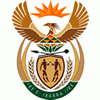
Jobs: Department of Arts and Culture
Jobs: Department of Arts and Culture Joy
Director-General: Arts and Culture (5-year contract appointment)
Location: Pretoria
An all-inclusive remuneration package of R1,689 750.00 per annum, consisting of a basic salary (70% of the total remuneration package), State’s contribution to the Government Employees Pension Fund (13% of basic salary) and a flexible portion that may be structured in terms of applicable rules and guidelines. (Ref DAC/14/2/1)
Key requirements: The Department of Arts and Culture is looking to recruit a creative, innovative thinker and seasoned administrator who is in possession of an undergraduate qualification (NQF level 7) and a post graduate qualification (NQF8) as recognized by SAQA • Qualifications in the field of arts, culture and heritage, would be an added advantage • 8-10 years proven experience in a senior managerial position of which 5 years must be with any organ of state as defined in the Constitution, Act 108 of 1996. Additional requirements: • Proven strong belief and commitment to good governance, development and excellence in arts and culture sector • The ability to drive transformation in the arts, culture and heritage sector • The candidate should demonstrate sound knowledge and understanding of government legislations/Act and Regulations pertaining to an administration of a government department • Knowledge, understanding and implementation of the Acts and Regulations pertaining to the arts, culture and heritage sector • Sound understanding of the National Programme of Action and the role of ACH sector • Proven capabilities in general core competencies for SMS in the Public Service including • Strategic and leadership abilities, Programme and Project Management, Change Management, Financial Management, People Management and Empowerment • Excellent written and verbal communication skills, as well as broad understanding of policies in the national and international context.
Key performance areas: The incumbent of this position would be expected to ensure top-class service delivery that will impact on all levels of society especially at grassroots level. He/she will be expected to deliver on the following: • Transformation of arts, culture and heritage sector • Effective governance and accountability of all arts and culture public entities • Develop and promote arts, culture and heritage policy that mainstreams its role in social development • Improve economic and other development opportunities for South African arts and culture nationally and globally through mutually beneficial partnerships, thereby ensuring the sustainability of the sector • Ensure development of social cohesion and social justice programme plan • Oversee the effective and efficient use of DAC resources • Develop and monitor the implementation of policies, legislation and the strategic direction for the identification, conservation and promotion of cultural heritage • Guide, sustain and develop the archival, heraldic and information resources of the nation to empower citizens through full and open access to these resources • Develop and promote the official languages of South Africa and enhance linguistic diversity.
Chief Director: Social Cohesion and Nation Building
Branch: Institutional Governance
Salary: An all-inclusive remuneration package of R1 042 500 per annum - consisting of a basic salary (70% of total package), the State’s contribution to the Government Employees Pension Fund (13% of basic salary) and a flexible portion that may be structured in terms of applicable rules and guidelines. (Ref: DAC: 1/14/2)
Requirements: A Bachelor’s degree in Social Science/ development studies (NQF7) as recognized by SAQA, • A post graduate degree will be an added advantage • 5 years’ experience at a Senior Managerial level • Knowledge of Government policy priorities and Programme of Action • Excellent stakeholder management skills • Good communication skills • excellent mobilization skills • Possess strategic leadership skills, financial as well as people management skills • Have knowledge of the arts and culture sector as well as other social development programmes • Possess good analytical skills • Experience in working with the NGO/ community structures • A driver’s license is a pre-requisite.
Key Performance Areas: The successful candidate will be responsible for the following: Lead and co-ordinate programme and projects on Social Cohesion and Nation Building • Facilitate reporting of Outcome 14 by delivery partners• Coordinate the implementation of programmes and projects to promote nation building and social cohesion • Facilitate signing and monitoring of compacts with social partners • Facilitate engagements with communities to dialogue on nation building • Set up structures at national, provincial and local sphere to promote social cohesion •Compile reports to various structures (Clusters, Cabinet, Inter-Ministerial Committee) • Manage transfers to NGOs working within the nation building space • Monitor the performance of programmes and projects implemented • mainstream programmes to uplift conditions of Women, Youth and People with Disability within DAC and its entities• Manage stakeholder relations. Develop financial models to support target groups programmes.
Please note:
The successful candidate will be required to enter into an employment contract and sign an annual performance agreement. All shortlisted candidates will be subjected to personnel suitability checks and the successful candidate will have to undergo full security vetting. All applicants are required to declare any conflict or perceived conflict of interest. All applicants are required to disclose membership of Boards and directorships that they may be associated with. The successful candidate will have to annually disclose her or his financial interests. Identified candidates will be subjected to a government specific generic competency assessment as well as a technical practical exercise as part of the interview process.
The Department of Arts and Culture is an equal opportunity, affirmative action employer and it is the intention to promote representivity in the Public Sector through the filling of these posts. Persons whose transfer/promotion/appointment will promote representivity will therefore receive preference. An indication in this regard will expedite the processing of applications. People with disabilities are encouraged to apply.
Applications must be submitted on the Form Z83, obtainable from any Government department or online at www.gov.za. ALL sections of the Z83 must be completed and signed and the application form should be accompanied by a comprehensive CV (including two recent and contactable referees) and ORIGINALLY CERTIFIED copies of the applicant’s ID and educational qualifications. It is the applicant’s responsibility to have foreign qualifications evaluated by the South African Qualifications Authority (SAQA) prior to the selection process. Applicants applying for more than one post must submit a separate Form Z83 (as well as the documentation mentioned above) in respect of each post being applied for. If an applicant wishes to withdraw an application, this must be done in writing.
Please forward your application, quoting the relevant reference number and the name of this publication to: The Chief Director: Human Resource Management, Department of Arts and Culture, Private Bag X897, Pretoria, 0001. Applications can also be hand delivered to the Department of Arts and Culture, Kingsley Centre, 2nd Floor, Cnr Church and Beatrix Streets, Arcadia, Pretoria.
Enquiries: Ms NP Maloka, 012 441 3730
Closing date: 28 February 2017
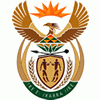
Jobs: Government Communication and Information System
Jobs: Government Communication and Information System JoyDeputy Director General: Intergovernmental Coordination & Stakeholder Management
Branch: IC & SM
Centre: Pretoria
Salary: All inclusive salary package of R1 299 501 per annum of which 30% may be structured according to the individual’s needs
REQUIREMENTS: Envisage for appointment to this position is a seasoned and experienced senior manager with a minimum of eight (8) to ten (10) years’ experience in senior management services dealing with government policy, intergovernmental relations, stakeholder and relationship management and development communication. An appropriate 4 years undergraduate qualification (NQF8) in Public Relations/Development Communication/ Public Management or any other related qualification. Excellent writing skills with extensive report writing experience. Strong Financial and Human Resource Management skills. Computer Skills. A code 8 driver’s license.
DUTIES: Provide effective strategic leadership and management of the Chief Directorate: Provincial Liaison, Media Engagement and Cluster Communications. Provide strategic leadership to Cluster Communication system in government and media .Build partnership with strategic stakeholders in pursuit of the GCIS’ vision of access to information. Ensure effective functioning of the ICSM Branch. Supervise, lead or participate in government communication projects, including giving strategic guidance to cluster communications. Manage intergovernmental relations, as well as stakeholder management for the programme. Provide support in developing communication system at the sphere of local government as well as working closely with the office of the Director-general and communication unit in the provincial government. Ensure synergy in the work of GCIS and that of the provinces with respect to communication guided by the national communication strategy. Build partnership with strategic stakeholders in pursuit of the GCIS’ vision of access to information.
ENQUIRIES: Mr D Liphoko, tel: (012) 473 0063
Deputy Director General: Content Processing and Dissemination Branch: CP&D
Branch: CP&D
CENTRE: Pretoria
SALARY: All inclusive salary package of R1 299 501 per annum of which 30% may be structured according to the individual’s needs
REQUIREMENTS: Envisage for appointment to this position is a seasoned and experienced senior manager with a minimum of eight (8) to ten (10) years’ experience in senior management services dealing with government policy, intergovernmental relations, stakeholder and relationship management and development communication. An appropriate 4 years undergraduate qualification (NQF8) in areas such as political science, communication and research would be an advantage.
DUTIES: Effective management of the Branch: Content Processing and Dissemination and also deputies for the DG in providing leadership in Government communication. Manage the following Chief Directorates: Products and Platforms, Marketing and Distribution as well as Policy and Research. Carry out all functions delegated to him/her by the DG. Co-ordinate strategic communication planning in GCIS and across government .Oversee the content development process implemented through the Communication Service Agency, Intergovernmental Coordination and Stakeholder Management, Media Engagement and Electronic Information Resources. Coordinate the dissemination of information about GCIS services. Supervise, lead or participate in communication projects. Development of a communication strategy for government and GCIS. Oversight over production of accurate and high quality content for GCIS platforms. Strategic oversight of the media Bulk Buying. Oversee the building and maintenance of reliable knowledge base to inform communication interventions. Coherence in the work of GCIS with respect to content development and management, integrated messaging.
ENQUIRIES: Mr D Liphoko, Tel: (012) 473 0063
The DG of Government Communication and Information System, Private Bag X 745, Pretoria 0001, for attention Mr S Matshageng or hand deliver to Tshedimosetso House, 1035 Cnr Francis Baard & Festival streets, Hatfield, Pretoria
FOR ATTENTION: Mr S Matshageng
CLOSING DATE: 24 February 2017
NOTE: GCIS is an equal opportunity employer. Applicants with disabilities are welcome to apply. Applications must be submitted on form Z83, obtainable from any Public Service Department or on the internet at www.gov.za/documents. The completed and signed form Z83 should be accompanied by a recently updated, comprehensive CV as well as certified copies of all qualification(s) and ID-document. The certification must be within three (3) months. Should you be in possession of a foreign qualification, it must be accompanied by an evaluation certificate from the South African Qualification Authority (SAQA). Applicants who do not comply with the above-mentioned requirements, as well as applications received late, will not be considered. Failure to submit all the requested documents will result in the application not being considered. Correspondence will be limited to short-listed candidates only. If you have not been contacted within three (3) months after the closing date of this advertisement, please accept that your application was unsuccessful. Suitable candidates will be subjected to a personnel suitability check (criminal record, citizenship, credit record checks, qualification verification and employment verification). All appointments are subject to the verification of educational qualifications, previous experience, citizenship, reference checks and security vetting. The successful candidate must disclose to the DG particulars of all registrable financial interests, sign a performance agreement and employment contract with the DG within three months from the date of assumption of duty and obtain a top secret security clearance. Recommended candidates will be subjected to a Competency Assessment test.
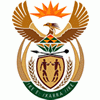
KZN youth get connected
KZN youth get connected JoyYoung people living in KwaZulu-Natal stand to benefit from a recently-launched multi-million rand WiFi service project.
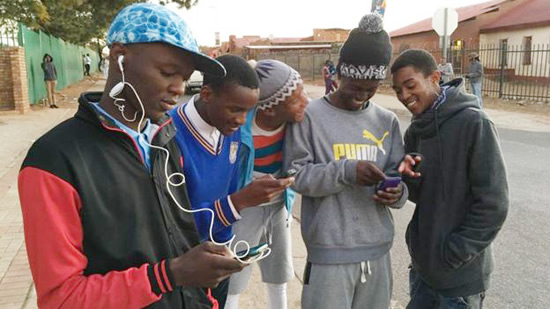 A R30 million free WiFi service will be launchedacross the eThekwini Municipality, including townships and rural areas.
A R30 million free WiFi service will be launchedacross the eThekwini Municipality, including townships and rural areas.
The data limit will begin at 250 megabytes a day per device, in the pilot phase.
Mayor Zandile Gumede said the project will be rolled out in phases. The pilot phase includes the laying of fibre optic cable, with the City having rolled out over 1 500 kilometres of fibre optic cables to date.
“This has enabled the City to connect all public facilities and to provide free WiFi in all municipal libraries. We expect to launch free WiFi in major townships, rural areas and areas around universities or where there is a high concentration of students,” she said.
The City also plans to set up 750 WiFi access points within the next three years.
“We believe this will help young people to search for jobs online and will help school children with their school work.”
Thokozani Zulu (27) said this is a great initiative.
“Most young people in the townships are unemployed and they need Internet access to seek jobs online. Almost everything is done digitally nowadays and other people could even benefit from this; they could start their own online businesses and market themselves,” he said.
Zimisele Ndlovu (33) said young people need to be able to access the Internet wherever they are.
“Digital life has made life easier for everyone but accessing Internet in the townships is a mission. Sometimes I have to come all the way to the library to get connected and do my university work. It would be great to have WiFi hotspots on every corner of the township so that we can
all get unlimited connection and do our work,”
he said.”
LandCare values sown
LandCare values sown andileIn 1997 government developed LandCare in Africa to highlight the importance of land conservation. Much has been done since and in October 2016, the seventh Biennial LandCare Conference was held in Kimberley.
Deliberations focused on finding resolutions to pressing LandCare challenges. The conference was co-hosted by the Department of Agriculture, Forestry and Fisheries and the Northern Cape Department of Agriculture, Land Reform and Rural Development, under the theme ‘Making a LandCare difference towards achieving land degradation neutrality’.
LandCare aims to optimise productivity and sustainability of natural resources in greater productivity, food security, job creation and a better life for all. The programme is community-based, community-led and government supported.
One of the sub-themes of the conference was ‘Management strategies and practices to promote resilience and the sustainable use of communal grazing for improved livestock, market access and economic benefits.’ 
To promote this outcome, it was decided that traditional leaders, their communities and government officials should work together through the establishment of community interest groups to manage fodder resources, land degradation and to enforce Conservation of Agricultural Resources Act (CARA) legislation to ensure sustainable supply of quality fodder for communities.
Other resolutions included the introduction of new beneficial fodder species to supplement the natural veld; and the promotion of LandCare awareness in communities, scaling out beneficial technologies and incorporating LandCare in the school curriculum.
PRESERVING WETLANDS
Another sub-theme was the ‘Sustainable use of wetlands and water management options in arid and semi-arid regions to mitigate the impact of drought and enhance livelihood’.
With South Africa experiencing its worst drought in decades, this was a particularly critical area of deliberation.
Outcomes included that LandCare projects should follow an integrated approach which ensures community buy-in and ownership for proper planning and implementation; and that Acts and policies which protect our natural resources, including CARA, the National Water Act and the National Environmental Management Act should complement each other with common goals and must be enforced or revised where necessary.
It was decided that awareness creation about the importance of catchment management through the capacity-building of youth and extension personnel was
important, and that steps must be taken to highlight the benefits of natural resource conservation.
SUSTAINABLE FARMING
Sustainable farming was grappled with in the sub-theme ‘LandCare solutions to enhance adoption of sustainable land management practices such as Conservation Agriculture (CA) or agroforestry for improved agricultural production.’
Resolutions included the implementation of Climate Smart Agricultural Technologies which extend to CA, bio fertiliser and soil health, agrobiodiversity, soil organic carbon build-up practices and indigenous knowledge. It was noted that government, including local government, should be involved in the implementation, monitoring and evaluation of agricultural conservation programmes.
INVADER PLANT SPECIES
The sub-theme ‘Best practices for the control and utilisation of invader plant species’ included the following resolutions:
That a basic training course in the responsible use of herbicides and practical sessions in veld management should be provided; that research on bush expansiveness and invasive species, focusing on the causes, implications and opportunities – such as alternative uses, including fuelwood, furniture and biochar, be explored; and that concerted efforts by all relevant stakeholders, including landowners and government, in a multi-faceted approach are required to plan and control invasive weeds.
It is hoped that the resolutions taken at the conference inform the evolution of the LandCare programme as well as related government policies and programmes.
More fire trucks on the West Rand
More fire trucks on the West Rand JoyResidents of the West Rand, Johannesburg, can expect more efficient and faster emergency services.
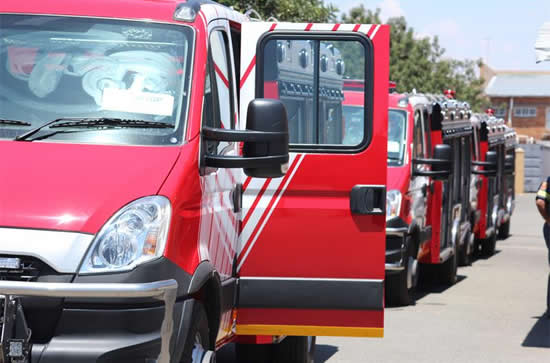 The West Rand District Municipality has bought five new fire trucks which will assist it to respond to emergency services in the area much faster.
The West Rand District Municipality has bought five new fire trucks which will assist it to respond to emergency services in the area much faster.
West Rand District Municipality Head of Department for Public Safety Peter Mokoto told Vuk’uzenzele that the new fire trucks will ease the pressure on existing fire trucks in the region.
At a cost of R40 million, the fire trucks are fitted with the Jaws of Life and airbags and can pump up to 900 litres of water per minute.
“We had the challenge of having to stretch our existing fire trucks throughout the West Rand and this proved strenuous in some instances.”
“There were accidents in one area and buildings on fire in another, thus hampering our response time due to not enough resources being available.
“However, this will be a thing of the past owing to this investment and we are happy to have received these resources,” said Mokoto. He added that the trucks were sent out into the streets the minute they arrived in the region.
They are being used to service numerous areas, such as Randfontein, Merafong City, Carletonville and Westonaria, among others.
Employees operating the trucks will not only be trained in fighting raging fires, but also how to perform on-the-scene medical treatment when responding to accident scenes, especially road accidents.
News in brief - Feb 2017 2nd Edition
News in brief - Feb 2017 2nd Edition JoyClean water for Qongwane Primary
Qongwane Primary School in northern KwaZulu-Natal is now a beacon of hope and life for residents in the area, as it has become the only centre with an unrestricted clean water in the community.
The water infrastructure was officially handed over by the head of the KwaZulu-Natal Treasury Department, Simiso Magagula to the school which has 334 learners.
NSFAS pays R1.3bn for student registrations
The National Student Financial Aid Scheme (NSFAS) has paid
R1.3 billion to 26 public universities for registration fees for qualifying students.
This equates to at least 15 percent of the total and final budget that each university may get for enrolling students who are eligible for government funding.
Over 160 000 students have been approved for funding and NSFAS is confident that no student, who has secured space, will be turned away because of funding.
No more queues for chronic medication
No more queues for chronic medication andileThe North West Department of Health has partnered with the private sector to make medicine easily accessible to patients.
Patients on chronic medication in the North West can now collect their medication at any Medirite pharmacy, located inside Shoprite stores and Clicks pharmacies, across the province.
This has been made possible thanks to the Centralised Chronic Medication Dispensing and Distribution (CCMDD) model, piloted by the Department of Health in the North West.
Department spokesperson Tebogo Lekgethwane said the CCMDD will reduce long queues at hospitals and clinics and cut costs for patients who have to travel long distances to get their medication.
“Patients will no longer have to queue at a health facility to get chronic medication. They can now choose a convenient pick-up point to collect their chronic medication. 
“The model is one of many innovative ideas that seek to improve access to chronic medicine, the quality of care and service delivery. The use of pick-up points will also help reduce the workload for public health facilities and healthcare workers and will improve patients’ experiences.”
If a patient is unable to collect their medication, they can nominate someone to collect it for them.
“Each patient has the option of nominating and registering family members to collect medication on their behalf.”
The department said the model is yielding positive results.
“The province has about 80 000 patients enrolled on the CCMDD model, which is mostly used in the Bojanala Platinum District. In this area 29 840 patients are using it.”
The model was first piloted in the
Dr Kenneth Kaunda District (a National Health Insurance pilot site) in 2014. “The district has enrolled 26 531 people on the programme and due to its success, the province is rolling it out to other districts.”
Patients who are interested in collecting medication at a convenient pick-up point need to register at a health facility.
“Once the registration process is complete, a patient will receive a SMS to collect their medication from the chosen pick-up point. Patients will have to go back to the health facility after six months for a check-up and a new prescription,” the department said.
Post-matric opportunities for potential artisans
Post-matric opportunities for potential artisans andileLearners who wish to study further now have a chance to do so.
The Department of Higher Education and Training (DHET) is urging learners from the class of 2016 to take up opportunities provided to them to study at Technical and Vocational Education and Training TVET colleges as artisans.
According to the National Development Plan, the country needs to produce at least 30 000 artisans a year to meet the economy’s demands.
Minister of Higher Education and Training Blade Nzimande said it is important that colleges only admit learners who have performed according to the required standard.
“It is critical to note that to be accepted into an artisan training programme, learners must have passed Mathematics, with a minimum of 50 percent, and must also have passed Science.” 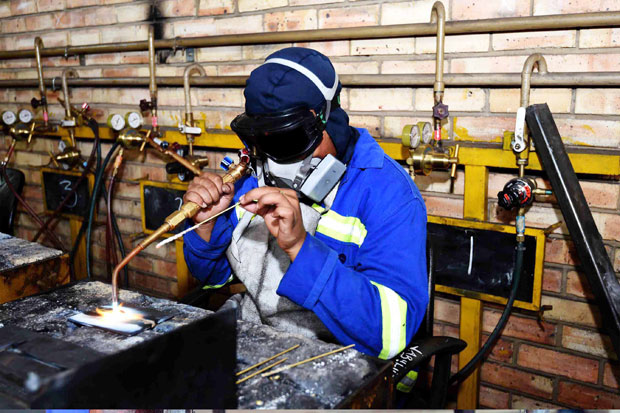
Those who did not pass well can do a bridging course.
“Learners who pass, but do not achieve the required level in Mathematics and want to consider a career as an artisan, can register for the Generic Trade Preparation Programmes, a bridging course for artisan training at the National Artisan Development Support Centre (NADSC).”
The NADSC, in consultation with SETAs, the National Skills Fund and TVET colleges, will assist in the facilitation of the placement of the prospective artisan applicants.
In an effort to increase access to TVET colleges’ learning programmes and to transform TVET colleges into institutions of choice, three new campuses will be opened this year, namely Thabazimbi Campus, at the Waterberg TVET College in Limpopo; Bambanani Campus, at uMfolozi TVET College in KwaZulu-Natal; and Nkandla A Campus, at uMfolozi TVET College in KwaZulu-Natal.
For more information on how to become artisans, learners can register at the NADSC website http://nadsc.dhet.gov.za, call 086 999 0125 or email copies of their qualifications to nadscinfo@dhet.gov.za or nadscplacements@dhet.gov.za
Renewal planned for industrial parks
Renewal planned for industrial parks JoyThe Department of Trade and Industry (dti) plans to spend R216 million on renovations at five industrial parks in the country.
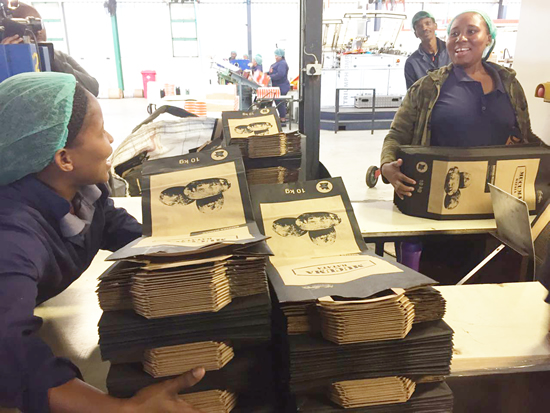 Minister of Trade and Industry Rob Davies said the renovations are aimed at upgrading the parks’ infrastructure so that they are better positioned to contribute to the country’s industrial development, economic growth and job creation.
Minister of Trade and Industry Rob Davies said the renovations are aimed at upgrading the parks’ infrastructure so that they are better positioned to contribute to the country’s industrial development, economic growth and job creation.
“Last year the dti spent more than R180 million on the upgrading of six industrial parks, spread across five provinces, in the first phase of our Revitalisation of Industrial Parks Programme. We have set aside R216 million from our critical infrastructure incentive programme to start revitalising five more this year,” said Minister Davies.
Industrial parks are areas where there are businesses and factories.
The first phase of the revitalisation of the Nkowankowa, Ekandustria, Bodirelo, Phuthaditjhaba and Garankuwa industrial parks is due to start, following the approval of their budgets late last year.
The revitalisation programme is implemented in four phases, focusing on various areas, with the first being the upgrading of security infrastructure.
The dti identified a need to revitalise industrial parks located in various parts of the country, mainly the former homelands, as part of its effort to promote industrialisation, manufacturing and job creation
“Our officials are already in the process of conducting inception meetings to discuss the implementation of the project with key stakeholders. The positive impact of the programme on the economy, in the areas where the parks are located, is felt as soon as implementation begins as most of the labour and construction materials are procured from these areas.
“The revitalisation process will ensure that the upgraded parks appeal to private investors, provide a conducive environment and attract investments that will create jobs and assist in promoting economic transformation,” said the Minister.
Revised Traditional Courts Bill approved
Revised Traditional Courts Bill approved JoyThe Traditional Courts Bill has been redrafted to address concerns raised by the public and make it more inclusive.
 Cabinet approved the latest version of the Traditional Courts Bill in December 2016, after hard work went into it by the Department of Justice and Constitutional Development and the reference group, which is made up of representatives from traditional leaders’ institutions and members of civil society. Traditional courts promote the equitable and fair resolution of disputes.
Cabinet approved the latest version of the Traditional Courts Bill in December 2016, after hard work went into it by the Department of Justice and Constitutional Development and the reference group, which is made up of representatives from traditional leaders’ institutions and members of civil society. Traditional courts promote the equitable and fair resolution of disputes.
“Their focus is on preventing conflict, maintaining harmony and resolving disputes in a manner that promotes peace, social cohesion and reconciliation,” said Justice and Constitutional Development Deputy Minister John Jeffery.
Since 2009, the Bill has been rejected by Provincial Legislature and interest groups as they were scared that it gave too much power to traditional leaders in rural areas and was open to the abuse of power.
The revised Traditional Courts Bill is fundamentally different from its previous versions.
Deputy Minister Jeffery said his department and reference groups have taken every effort to address the concerns raised in the two previous Bills, which were introduced in Parliament in 2008 and 2012.
“We have addressed concerns which were raised in relation to the role of women, the right to opt out and in, and what was perceived as an entrenchment of tribal boundaries.
The Bill is intended to improve access to justice, as these courts are easily accessible to local communities, and to dispense justice speedily and cheaply.
“Although legal representation is excluded, the system allows for assistance to women and other vulnerable members of society.”
The courts enhance access to justice for all who choose to use them as an alternative to resolving disputes.
Deputy Minister Jeffery said the approval of the Bill by Cabinet is a culmination of the tireless work of the reference group, which is made up of representatives from traditional leaders’ institutions and members of civil society.
SETAs provide learning programme opportunities
SETAs provide learning programme opportunities andileSector Education Training Authorities (SETAs) are set to play a big role in making opportunities available to post-school learners this year.
Minister of Higher Education and Training Blade Nzimande said SETAs will provide opportunities in the form of learnerships and bursaries. 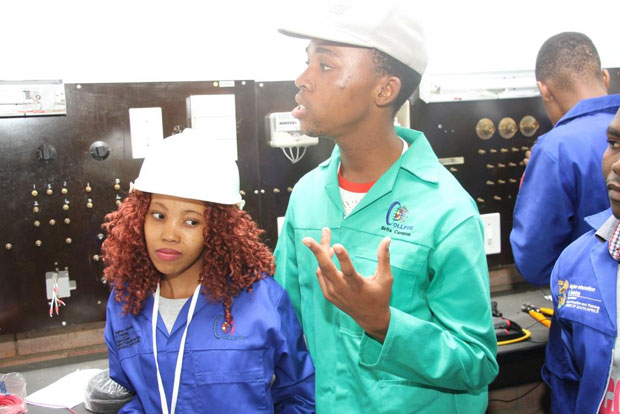
“SETAs will provide 100 821 learning programme opportunities in the form of 34 469 learnerships, 17 824 bursaries, 5 819 internships, 26 193 skills programmes and 9 486 work-integrated learning and 7 030 apprenticeship opportunities.”
The National Skills Fund will continue to invest in TVET colleges, funding approximately 15 000 learners per annum in occupationally-directed programmes which are linked to scarce and critical skills areas.
He called on other sectors of society to get involved in funding different opportunities in the higher education sector.
“We call on business and state-owned enterprises, municipalities and other employers to redouble their efforts, join hands with us and ensure that young people are afforded an opportunity to gain skills and make a life for themselves.”
Transforming the education sector
Transforming the education sector JoyGovernment is set on improving the education sector to ensure that children get quality education in order to live a better life.
 President Jacob Zuma says the South African government will always prioritise education because it is only through quality education that the country can win the fight against unemployment, poverty and inequality.
President Jacob Zuma says the South African government will always prioritise education because it is only through quality education that the country can win the fight against unemployment, poverty and inequality.
The President was speaking at the three-day Basic Education Sector Lekgotla held in Pretoria recently.
The Lekgotla was aimed at aligning the sector’s plans with the National Development Plan (NDP). The 2017 Lekgotla is also a platform for role players in the basic education sector to address issues that include the learner dropout rate and grade repetition.
Representatives from the Basic Education Ministry, MECs from across the country, heads of department from provincial education departments, district directors and other stakeholders came together under one roof to share ideas on improving the sector.
President Zuma said education is the primary weapon in the struggle for economic transformation and in the quest for a better life for all, especially the poor.
“It is for this reason that education gets the biggest slice of the national budget. Education is the ladder out of poverty and economic stagnation.”
President Zuma highlighted progress made in education over the past 22 years.
“We have made progress towards universal coverage of school-going children. We have made progress in the introduction of Early Childhood Development.
“We have progressively worked towards eliminating mud schools and inappropriate school structures, replacing them with state-of-the-art buildings, especially in historically neglected areas.
“We have also expanded access to free education for children from poor households. No child must be
denied basic education because their parents are poor or deceased,” said the President.
Transforming Education
President Zuma urged parents who are able to read to do so with their children to inspire a love of learning in the country’s future leaders. This, he said, will improve learner literacy levels.
“Let us not allow television to take away our children’s time to read. Parents should control the time spent by their children watching
television, so that it does not affect their school work.”
President Zuma said interventions to get more educators trained in Mathematics, Physical Science, Accounting and languages must be supported to improve learner outcomes in these critical subjects. Further, more children must be encouraged to take these subjects.
Uniting to fight crime
Uniting to fight crime JoyA new Ekurhuleni Metropolitan Police precinct is set to bridge the gap between the community, the SA Police Service, and Ekurhuleni Metropolitan Police Department.
Residents of Zonkizizwe in Ekurhuleni, East of Johannesburg, will no longer have to walk up to 10km to access a police station. Instead they will have police services available to them 24-hours a day.
The Ekurhuleni Metropolitan Municipality has opened a multi-million rand metro police precinct in the area to strengthen its efforts to respond to crime and social ills and to strengthen relations between the Ekurhuleni Metro Police Department, the SA Police Service and the community.
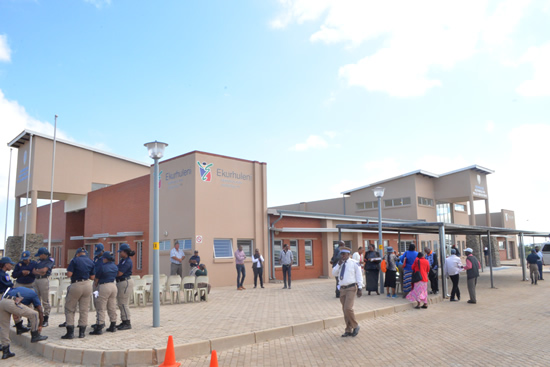 Ekurhuleni spokesperson Themba Radebe said the R20 million facility will result in a better community safety for all.
Ekurhuleni spokesperson Themba Radebe said the R20 million facility will result in a better community safety for all.
“What we want to ultimately do is to take the battle of crime right into our communities to make it difficult for criminals to commit crime, and deal with those who disregard municipal by-laws. We can only do this with the help of our communities.”
Although Ekurhuleni traffic officers stationed at the precinct will be responding to criminal activities, they will not be replacing the function of the SA police services. They will merely be enhancing service delivery.
Addressing the community at the launch of the precinct, the MMC for Community Safety, Councillor Vivian Chauke, said the precinct represented a step closer to winning the fight against crime and warned those who don’t comply with the city’s by-laws to do so.
“Our key duties are ensuring that there is not just law and order but that we instil confidence in our people about safety and security interventions that have been put in place.
“We also want to use the precinct to stop the disconnect between communities and law enforcers and we are confident that such efforts will bear fruitful results,” said Chauke.
Local resident Pastor Paul Sikhosana, from Palm Ridge Extension 5, welcomed the initiative and said that it will go a long way towards helping the community.
“Before this precinct we used to report cases at the Eden Park Police Station. We are happy that we no longer have to walk long distances to get help,” he said.
Multi-party approach to LandCare
Multi-party approach to LandCare Estelle GreeffGreater productivity, food security, job creation and a better quality of life for all can only be achieved if South Africa’s natural resources are safeguarded through the cooperation of all sectors of society.
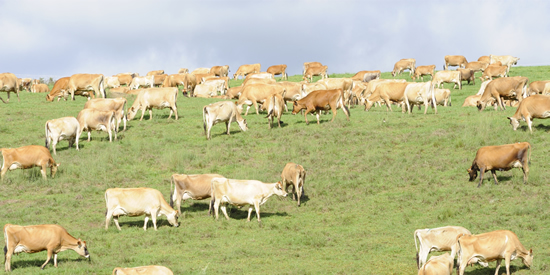 This was one of the issues deliberated at the recent seventh Biennial National LandCare Conference, under the sub-theme ‘Experiences of LandCare committees, civil society organisations – including community-based and non-governmental organisations, and youth empowerment in promoting community-based natural resource management’.
This was one of the issues deliberated at the recent seventh Biennial National LandCare Conference, under the sub-theme ‘Experiences of LandCare committees, civil society organisations – including community-based and non-governmental organisations, and youth empowerment in promoting community-based natural resource management’.
Going forward, it was decided that information should be better disseminated through both the media and information brochures; and that global scholarship be strengthened through publications in accredited scientific journals.
Also receiving attention at the conference was the African LandCare Network (ALN), a network of individuals, institutions, government and non-government organisations that are committed to championing the LandCare approach in Africa.
Resolutions at the ALN session included that partnerships and LandCare capacity-building events continue to be used to reach other countries in Africa; and that awareness be created of the role of the LandCare approach towards achieving pertinent issues in the global agenda.
These include meeting country level targets on land restoration and land degradation neutrality; climate change mitigation and adaptation; and local-level ‘green’ entrepreneurship, job creation and niche market development.
Additional ALN resolutions included that the LandCare approach be positioned as the best option currently for upscaling sustainable livelihoods; and that more spirited efforts be made towards the development and realisation of the green belt in Southern African states through enhanced fundraising and awareness creation by 2017, thereby ensuring sustainable agricultural productivity and livelihoods in the region.
Steps will also be taken to mainstream the LandCare approach in country programmes and projects. It was decided that awareness creation and partnerships be fostered through maximising opportunities offered via side events at major conferences and meetings; and that members continue with regular cost-effective meetings and teleconferences, at least on a quarterly basis.
In addition, special fundraising focus and support will be given to regional and national LandCare networks; through awareness creation and partnership development, especially in support of public-private partnerships; and the documentation and dissemination of lessons learned.
EC village gets low flush toilets
EC village gets low flush toilets Estelle GreeffAn innovative technology introduced in the Eastern Cape has improved access to quality sanitation while saving water.
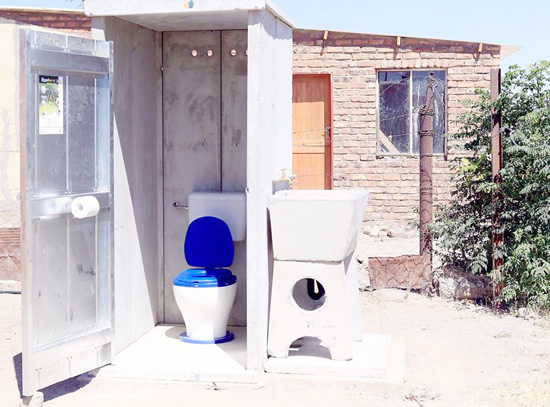 The Department of Science and Technology has unveiled an off-grid sanitation technology solution called the ‘low pour flush toilet system’, which is already benefiting over 120 households in Ndakana village under Amathole District Municipality.
The Department of Science and Technology has unveiled an off-grid sanitation technology solution called the ‘low pour flush toilet system’, which is already benefiting over 120 households in Ndakana village under Amathole District Municipality.
The system is low maintenance and uses only two litres of water for one flush.
The initiative is a partnership between the department, Water Research Commission (WRC) and the Bill & Melinda Gates Foundation.
The toilet system was designed to have a look and feel similar to a full flush toilet, but enables greater flushing efficiencies and robustness.
Speaking at the official launch, Science and Technology Deputy Director-General for Socio-Economic Innovation Partnerships, Imraan Patel, said the system represents a significant step up the sanitation ladder from ventilated improved pit (VIP) latrines, which were associated with poor user experiences.
"What started as a pilot study with 20 household toilets has now grown with over 600 of these innovative sanitation systems implemented countrywide," Patel said.
Executive Mayor of Amathole District Municipality, Nomfusi Winnie Nxawe welcomed the initiative, saying it will improve the lives of the people in the area.
"As a drought-stricken district, including Amahlathi, all the technology being provided by the department will undoubtedly assist us in providing services for our people…”
New system to improve service delivery
The Department of Science and Technology has launched another new system to help municipalities improve their turnaround times when attending to service delivery complaints.
The Corrective Action Requests Report System (CARRS) is a web-based technology designed by the Council for Scientific and Industrial Research (CSIR) to improve the efficient management of water leaks.
CARRS is currently being piloted in eight district municipalities around the country, including Amathole, Capricorn and Vhembe in Limpopo, Ehlanzeni in Mpumalanga, iLembe in KwaZulu-Natal, and Dr Ruth Segomotsi Mompati, Ngaka Modiri Molema and Bojanala Platinum in the North West.
New chair for the AU Commission
New chair for the AU Commission Estelle GreeffAfrica news
Chad's Foreign Minister Moussa Faki Mahamat has been elected the new Chairperson of the African Union (AU) Commission.
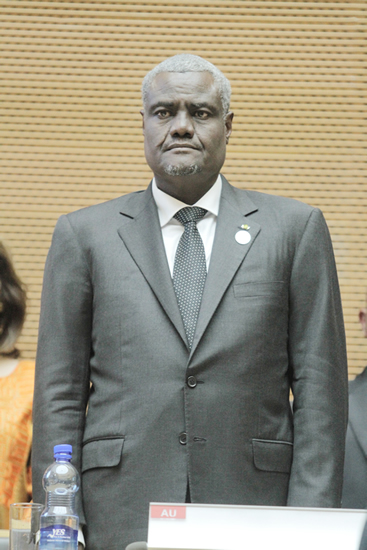 Leaders of AU member nations elected Mahamat in January, in a heavily contested race with five candidates vying for the post during the 28th AU Summit at the continental body’s headquarters in Addis Ababa.
Leaders of AU member nations elected Mahamat in January, in a heavily contested race with five candidates vying for the post during the 28th AU Summit at the continental body’s headquarters in Addis Ababa.
Mahamat replaces South Africa’s Dr Nkosazana Dlamini-Zuma, who decided not to seek a second four-year term.
Mahamat was Prime Minister of Chad from 2003 to 2005. He was the president of Chad’s Economic, Social and Cultural Council from 2007 to 2008, and has served as its Minister of Foreign Affairs.
The election of the AU Commission Chairperson was postponed after no candidate secured the required number of votes to win the race during the election held at the last AU summit in July 2016.
To be declared a winner, a candidate should obtain at least two-thirds of the vote (36 votes). However, after three rounds of voting, no candidate was successful during the last voting process.
This year Mahamat won, with 39 votes.
Kenyan Foreign Minister Amina Mohamed, a strong candidate to replace Dlamini-Zuma, congratulated Mahamat and pledged to work with him for a better Africa.
Mohamed only secured 26 votes in the hotly contested election.
Ghanaian Kwesi Quartet was elected Deputy Chairperson of the AU Commission.
AU restructures to be financially independent
AU restructures to be financially independent Estelle GreeffAfrica news
Reforms to restructure the African Union (AU) and place it on the road to becoming financially independent have breathed new life into the organisation, says President Jacob Zuma.
The president was speaking following key decisions approved by African leaders at a summit in Addis Ababa in January.
“You feel there is a new breeze that has come in the manner that we are going to run this organisation,” said Zuma speaking on the sidelines of the AU’s 28th Ordinary Session of the Assembly of Heads of State and Government African Leaders.
At a retreat attended by African leaders before the start of the summit on January 22, Rwandan President Paul Kagame presented a report he’d been instructed to draft on how to restructure the organisation.
Among the proposals discussed was how to move the organisation towards becoming financially independent. At present the AU derives about 70 percent of its budget from outside funders, such as the EU and the World Bank.
“There’s been a very strong feeling that we need to raise money on our own so that we can do what we want. Because at times those who give money tend to, in a sense, direct you to where they want their money to be used,” said President Zuma.
A decision was taken at the Kigali summit last year that the AU will implement a 0.2 percent levy on all eligible imported goods to the continent to finance the organisation.
In addition leaders have now agreed on stronger governance procedures to ensure the effective implementation of decisions.
“There has been no system that says that if decisions are taken, this is the route they take, this is what will happen, these are the timeframes,” said Zuma.
He said a decision was taken at the summit to implement the various proposals within the next two to six years. This, he pointed out, indicates the willingness of the organisation to transform and “do things differently”.
Africa must give youth more opportunities
Africa must give youth more opportunities Estelle GreeffAfrica news
Africa must do more to harness the power of its 200 million youth who fall between the ages of 15 and 24, said former African Union (AU) commissioner Nkosazana Dlamini-Zuma.
 Addressing the AU summit held in Addis Ababa in January, Dlamini-Zuma pointed out that Africans are set to make up a quarter of the world’s youth who are under 25, by 2025.
Addressing the AU summit held in Addis Ababa in January, Dlamini-Zuma pointed out that Africans are set to make up a quarter of the world’s youth who are under 25, by 2025.
“As the rest of the world ages, Africa will remain a young continent. This is the comparative advantage we have, which must be translated into a demographic dividend,” she said.
Dlamini-Zuma said African countries must provide the youth with opportunities to be in school, complete secondary education and have access to vocational training and universities.
They must also provide the youth with the opportunity to expand their knowledge of Science, Mathematics, Engineering and Technology, she said.
“Within this, we must pay special attention to creating opportunities for girls and young women, so that we use the full potential of all our resources,” she added.
She welcomed the African Development Bank’s Strategy for Jobs for Youth in Africa 2016-2025, which aims to create 25 million jobs and impact 50 million youth.
The bank estimates that lowering Africa’s youth unemployment rate to fall in line with that of adults, will boost the continent’s gross domestic product (GDP) by between 10 percent and 20 percent.
The AU will appoint a special envoy for youth this year to mobilise and advocate for them, while the African Economic Platform will be held in Mauritius from 20 to 22 March to foster engagement between business and academia.
In a closing statement Dlamini-Zuma said the experience of serving as commissioner was a humbling one.
“For us as Africans to serve, there is no service more important, honourable or rewarding than to serve our continent and the citizens of Africa.”
Football safe hub for Alex youth
Football safe hub for Alex youth Estelle GreeffSport, arts and culture
Youngsters living in the north of Johannesburg are expected to benefit from a newly-opened hub in the area.
 The South African Football Association Development Agency (SAFADA), in partnership with Total Sports, has opened a safe hub for young people in Alexandra.
The South African Football Association Development Agency (SAFADA), in partnership with Total Sports, has opened a safe hub for young people in Alexandra.
The hub is the fourth in the country, following the opening of two hubs in Cape Town and one in Diepsloot. Plans are in place to build 100 hubs across the country in the next 10 years.
The safe hub is a football-based, after-school programme for youth development and is a space where young people have access to services, opportunities and support from strong role models. The programme focuses on health, safety, education and employability.
Facilities at the hub include an artificial turf football field, which is connected to Youth Café; a training academy; ICT & eLearning centre; transversal office spaces; psychosocial support centre and shop units.
The safe hub was developed by AMANDLA EduFootball, an international non-profit organisation based in South Africa and Germany.
The opening of the hubs has yielded positive results, with contact crime reduced by 44 percent between 2008 and 2014.
During the same timeframe the safe hubs’ primary school programme participants have shown an increase in their education results by an average of 49 percent, in comparison to control groups.
The safe hub will accommodate 2 000 participants and will commence in April 2017.
“ We aim to enrol over 2 000 participants in the safe hub programme in Alex.
“This will provide youth development through football and assist us to build structures of talent development in the community,” said SAFADA Chief Executive Officer Dr Robin Peterson.
The City of Johannesburg’s Member of the Mayoral Committee for Community Development Cllr Nonhlanhla Sifumba expressed her delight with the programme and committed the city to supporting the rollout of more safe hubs.
“The hubs have the ability to change thousands of young peoples’ lives, ensuring they become healthy, educated and productive citizens,” she said.
Farewell Thandi Klassen
Farewell Thandi Klassen Estelle GreeffSport, arts and culture
The music industry has lost yet another gem whose music continues to inspire many South Africans.
 The South African music industry suffered yet another blow after the recent passing of legendary jazz musician Thandi Klassen.
The South African music industry suffered yet another blow after the recent passing of legendary jazz musician Thandi Klassen.
The internationally acclaimed and respected jazz icon from Sophiatown succumbed to pancreatic cancer at East Rand Hospital at the age of 86.
“We have lost one of the leading pioneers of South African jazz music and promoters of the country's cosmopolitan culture.
Klassen began her career singing in local churches and formed her own female quartet called The Quad Sisters. In the 1960s she starred in the internationally acclaimed musical, King Kong, by composer Todd Matshikiza.
The icon also spent time abroad where she performed with many international stars, among them Roberta Flack and Patti Labelle, and steadily gained a reputation as a jazz singer.
Paying tribute to Klassen President Jacob Zuma said Klaasen contributed to the country not only as a musician but also a social and political activist, who was always outspoken about social-economic issues in the country.
“We have lost one of the leading pioneers of South African jazz music and promoters of the country's cosmopolitan culture. She was a role model to many of our young and upcoming musicians and her legacy will live on for generations to come," said President Zuma
Klaasen earned several awards and honours including the National Order of the Baobab from the President, which was bestowed on her for her excellent achievement in and contribution to music.
"We convey our deepest condolences to her family, relatives and all in the arts and culture industry. May her soul rest in peace,” President Zuma said.
Arts and Culture Minister Nathi Mthethwa, also paid tribute to Klassen whom he said kept alive Sophiatown’s sounds and melodies and its rich cultural tradition through her music.
“We shall remember her for her indomitable spirit, her enduring will to succeed against all odds, her beautiful and haunting voice that inspired generations of South Africans. This silky smooth voice also serenaded audiences the world over,” the Minister said.